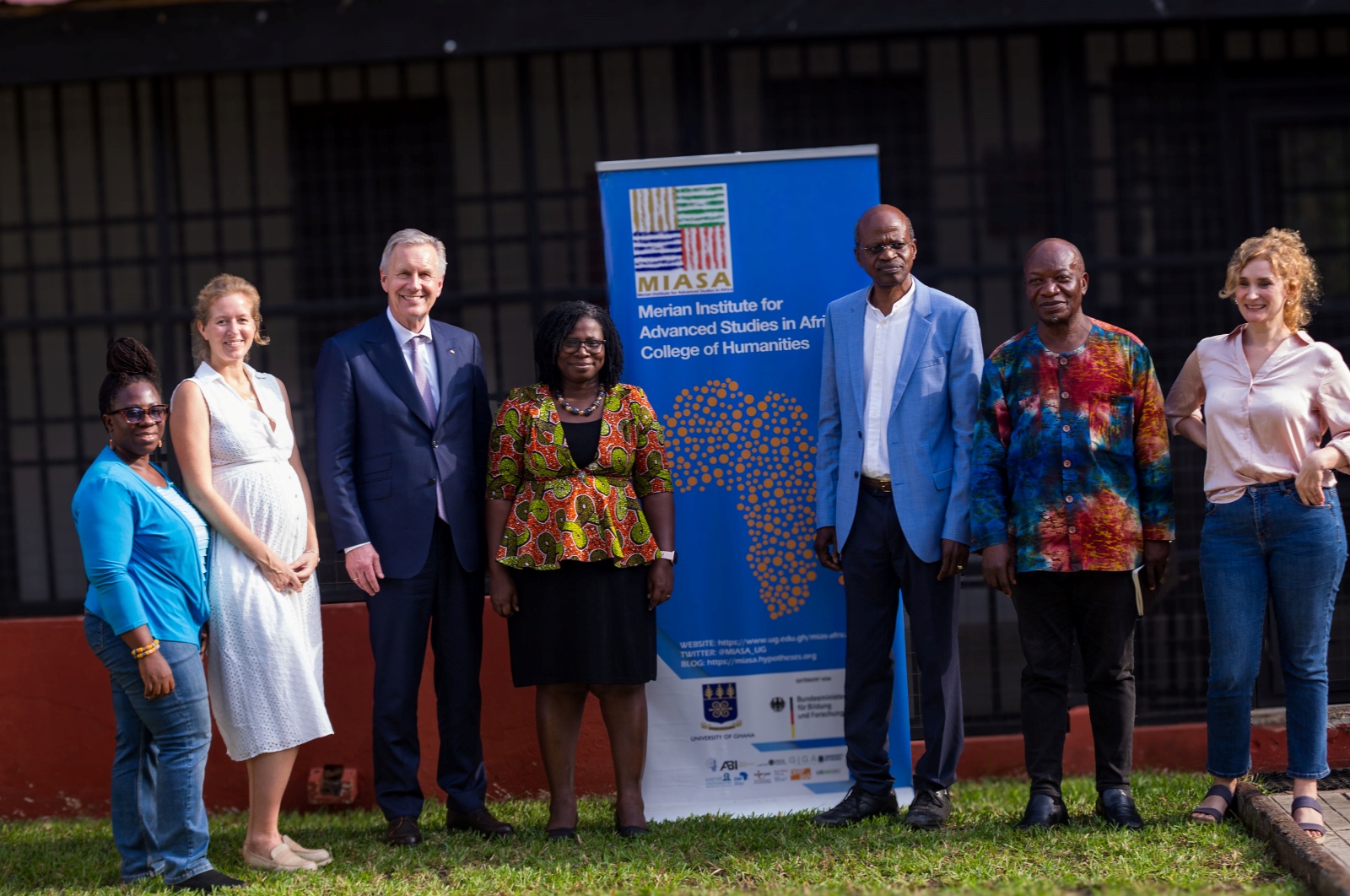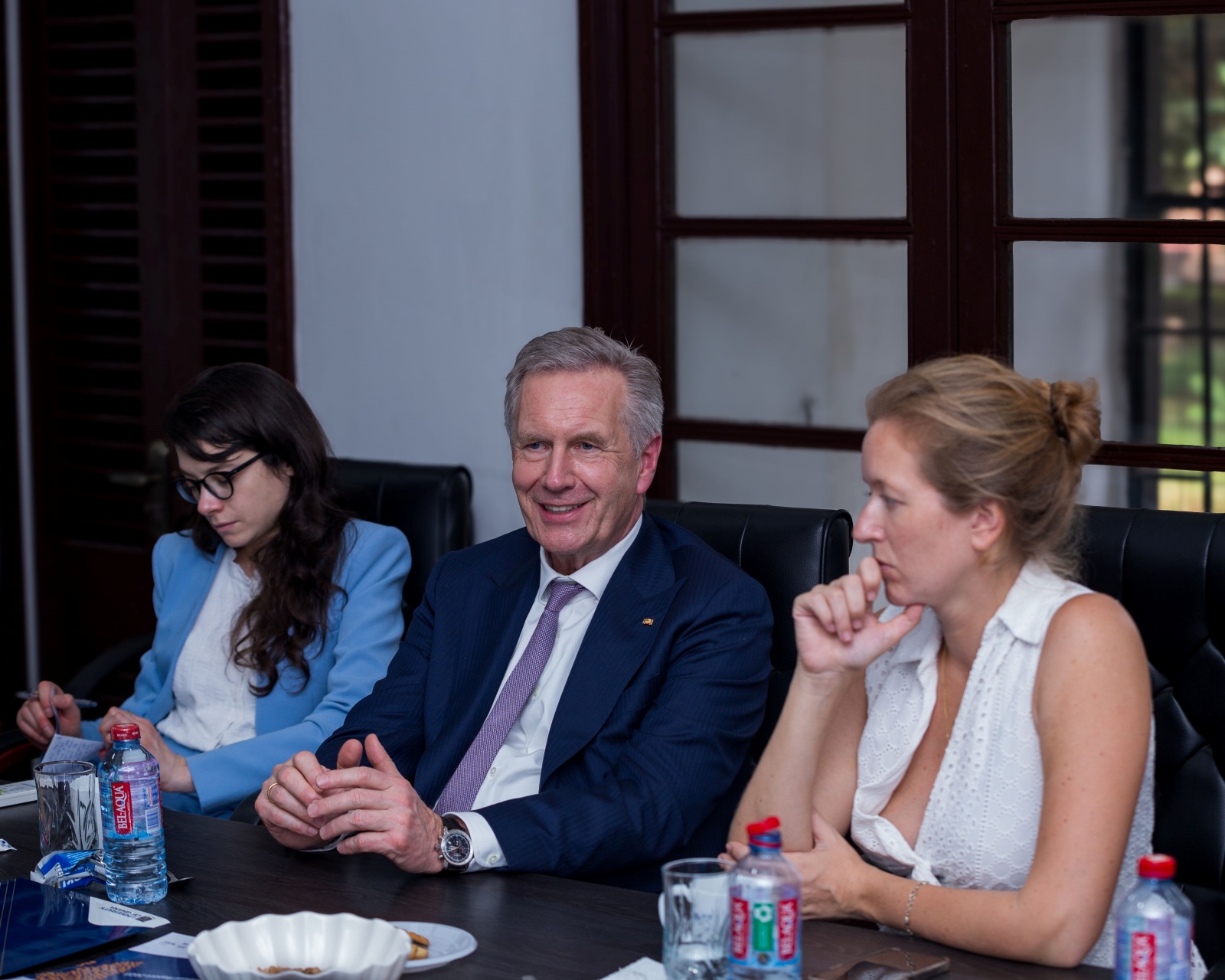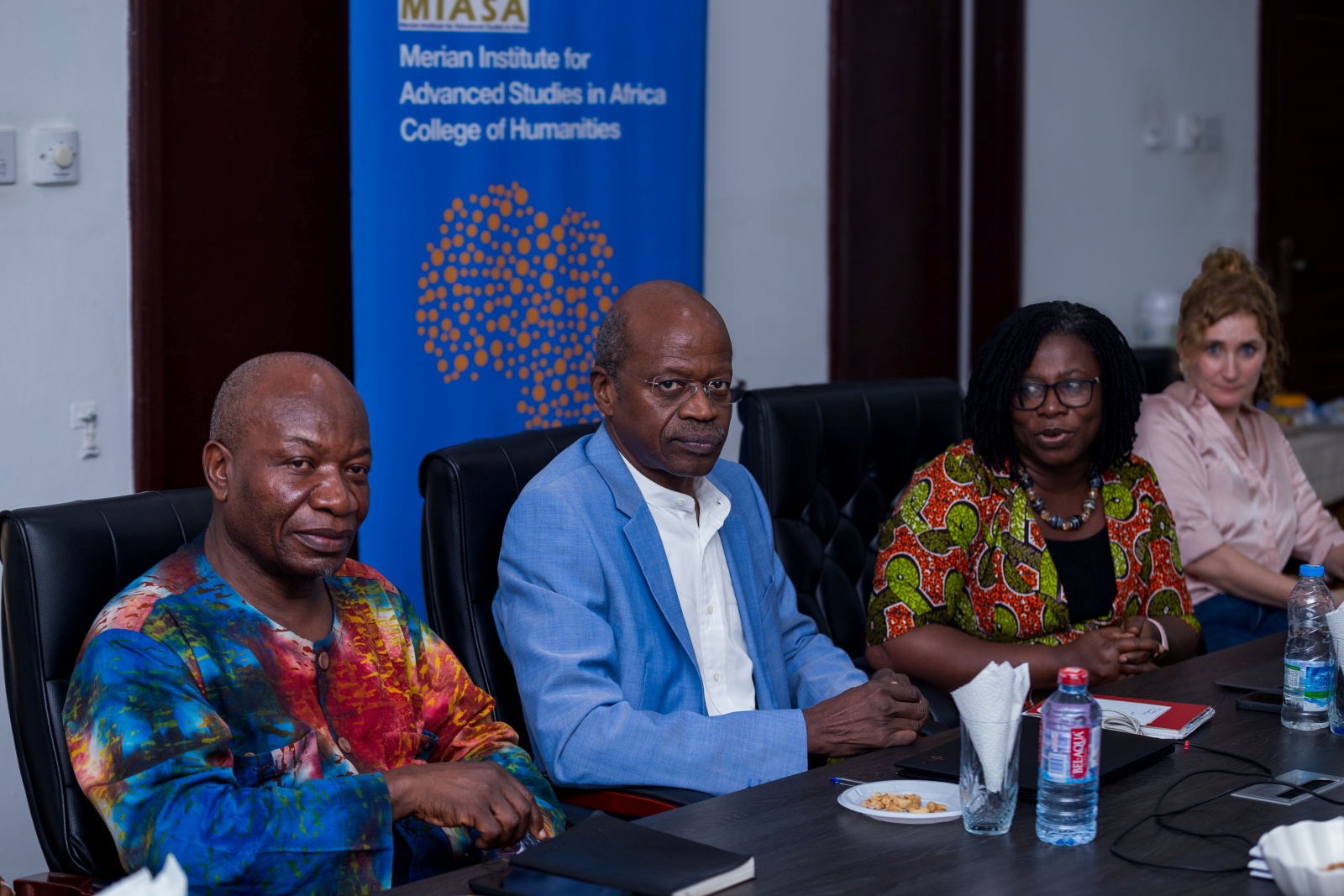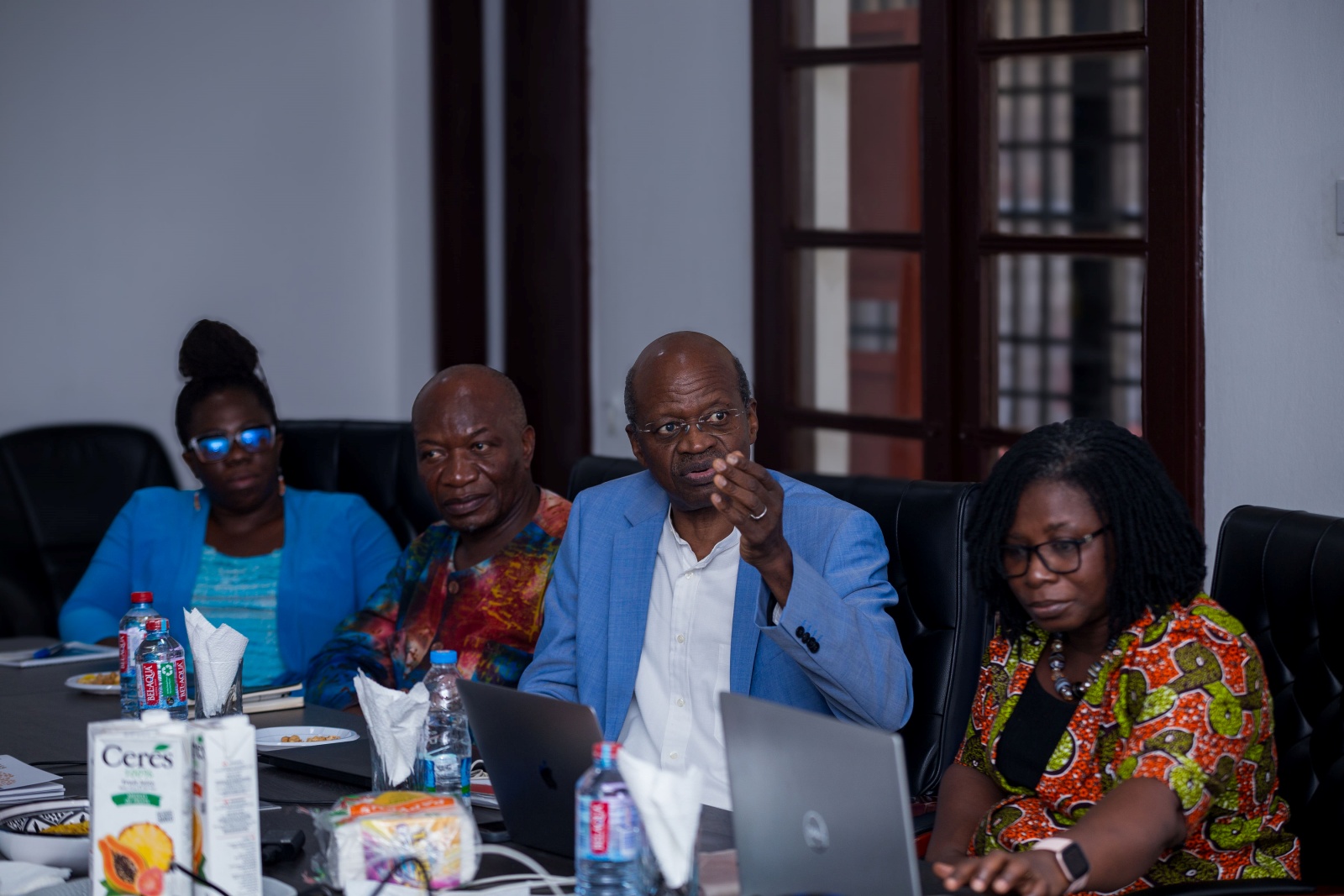Former German President Christian Wulff Advocates for Progress in Restitution of African Artifacts

Former President of Germany, His Excellency Christian Wilhelm Walter Wulff, has underscored the importance of restitution as a pathway to building trust, respect and understanding between Germany and Africa.
He made this known during a recent visit to the Maria Sibylla Merian Institute for Advanced Studies in Africa (MIASA) at the University of Ghana as part of his itinerary while attending the inauguration of His Excellency John Dramani Mahama as Ghana’s new president. He also engaged with the leadership and team members at the Institute to further understand its operations and their contributions to the ongoing collaborations between Ghana and Germany.

Speaking during the meeting, H.E. Wulff addressed the historical injustices surrounding the removal of cultural artifacts from Africa and stressed the need for collaborative efforts to address these challenges.
“I am of the opinion that the topic of restitution is an important one,” H.E. Wulff stated. “Efforts have been made to identify items taken to Germany and collaborative steps are being taken with stakeholders to ensure their rightful return.”
The former President expressed concern about the slow pace of discussions regarding the return of stolen artifacts, describing them as “stalling.” He pledged to work with stakeholders to accelerate the process and identify solutions, including creating spaces where returned artifacts can be preserved and utilised for meaningful purposes.
“While the mistakes of the past cannot be undone, progress can be achieved by taking deliberate steps toward restitution,” he added, reaffirming Germany’s commitment to addressing these historical issues.
H.E. Wulff also commended MIASA for promoting dialogue on restitution and decolonising knowledge production. He highlighted initiatives such as the interdisciplinary fellow groups and workshops, which explore restitution, repatriation, and reparations as vital steps in resolving cultural and historical injustices.
To apprise the visiting former President of MIASA’s contributions and operations, Prof. Grace Diabah, Co-Director of MIASA (Ghana), provided an overview of the Institute’s establishment and its role in advancing academic partnerships and cultural understanding. She highlighted the financial support received from the German Federal Ministry of Education, which has been instrumental in MIASA’s operations.

“MIASA has successfully completed 146 fellowships, including 87 senior fellows, 59 junior fellows and 81 interdisciplinary fellow groups,” Prof. Diabah announced. She noted that Africa accounted for 44.5% of the fellows, with a majority from West Africa, while Europe, predominantly Germany, contributed 41.7%.
On sustainability, Prof. Diabah discussed the establishment of a sustainability committee and reiterated Germany’s role as a strategic partner. However, she mentioned the need to diversify partnerships while maintaining strong collaborations with Germany.
Prof. Mamadou Diawara, Co-Director of MIASA (Germany), for his part, delved into the Institute’s thematic focus areas, which include sustainability governance and cross-cutting issues such as knowledge production, bridging cultural divides and promoting female scholarship.
“The interdisciplinary fellow groups have been a cornerstone of MIASA’s work,” Prof. Diawara explained. “These groups explore case studies on transcultural aphasia and restitution, among other topical issues of concern to MIASA, contributing significantly to debates on return, repatriation and reparations.”

He also highlighted initiatives like the Anton Wilhelm Amo lectures and other seminars and workshops organised by the institute with the aim to decolonise knowledge production and advance philosophical inquiry into restitution.
Commenting on the issues surrounding restitution, Prof. Kodzo Gavua, Associate Professor of Archaeology and Heritage Studies and Chair of the Ghana Focal Team on Restitution and Reparation, provided detailed insights into MIASA’s restitution efforts. He cited a three-month intensive study that included scoping visits to Togo, Benin, Côte d’Ivoire and Ghana, engaging traditional rulers, including those in Kpando.
“The case of Kpando is unique due to the removal of artifacts to Germany,” Prof. Gavua noted. “Efforts to return these items have been slow, to avoid contestations and ensure a thoughtful approach to restitution.”
Prof. Gavua also highlighted an African restitution workshop that brought together scholars from across the continent to discuss next steps after restitution. “Restitution is a matter of trust, respect and understanding,” he emphasised, calling for continued dialogue and collaboration.
The meeting underscored MIASA’s pivotal role in promoting interdisciplinary research and dialogue on restitution. H.E. Christian Wulff took the opportunity to visit the Department of Philosophy and Classics.
The former President was accompanied by Ms. Livia Puglisi, Chief of Staff at the Office of Former German President; Ms. Sivine Jansen, Deputy German Ambassador to Ghana and Ms. Pauline Okkens, Protocol Officer and Political Advisor at the German Embassy.
Present at the meeting from the MIASA team were Dr. Gertrude Aba Mansah Eyifa-Dzidzienyo from the Department of Archaeology and Heritage Studies and a member of MIASA IFG 5; Dr. Agnes Schneider-Musah, Academic Coordinator of MIASA at the University of Ghana and Mr. George Amexo, Event Manager of MIASA at the University of Ghana.
![]()